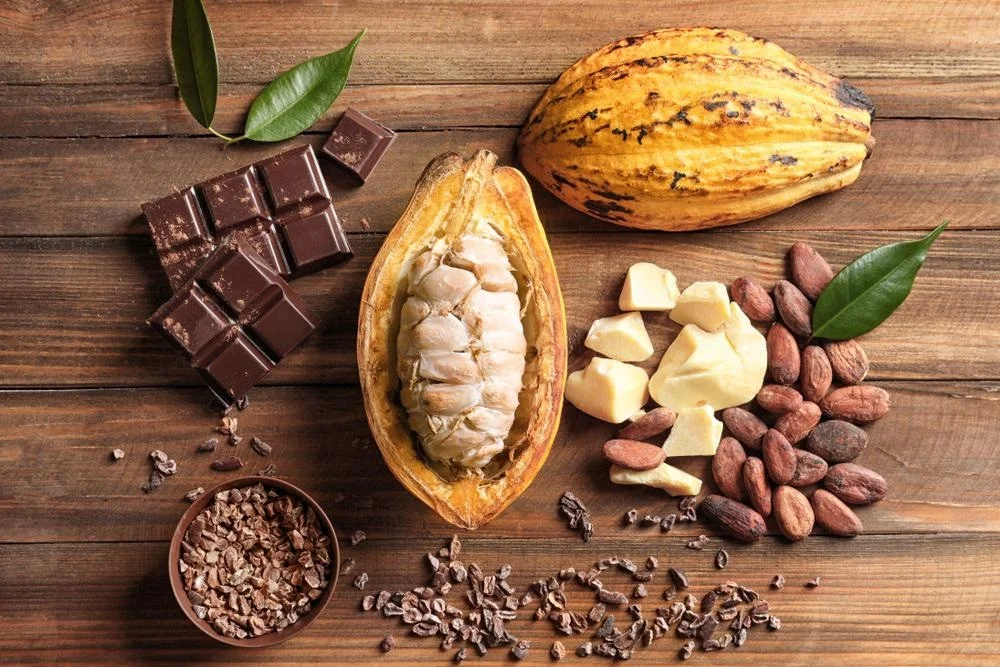Cocoa is not just a commodity in Ghana; it is a key part of the country’s economic, social, and cultural fabric. As one of the world’s largest producers of cocoa, Ghana’s economy has long relied on this crop, contributing significantly to national growth and development. In this blog post, we will explore the five main reasons why cocoa is so important to Ghana.
1. Cocoa’s Contribution to Ghana’s Economy
Cocoa is one of Ghana’s most important cash crops, contributing significantly to the nation’s GDP. The country ranks as the second-largest producer of cocoa globally, after Côte d’Ivoire, and exports millions of tons of cocoa beans annually. Cocoa production in Ghana directly supports the livelihoods of over 800,000 farmers, with indirect support for millions more within the value chain.
The revenues from cocoa exports help to stabilize Ghana’s economy by providing foreign exchange and enabling the government to invest in vital sectors such as education, healthcare, and infrastructure. According to the Ghana Cocoa Board (COCOBOD), cocoa exports account for a major portion of the country’s annual earnings.
2. Cocoa Supports Rural Development
A large percentage of cocoa farmers in Ghana live in rural areas. Cocoa farming provides an income that supports entire communities, helping to improve standards of living. The growth of cocoa farming has led to the development of small towns and villages, with new schools, markets, and healthcare facilities being established to support the growing population.
Cocoa also helps to reduce rural poverty, as many farmers rely on it as their primary source of income. The government and various non-governmental organizations are working on initiatives to improve the sustainability of cocoa farming in Ghana, offering training on better farming practices, pest control, and environmental sustainability.
For a deeper look at rural development in Ghana, you can explore this Hospitality GH article on rural growth.
3. Cocoa and Job Creation
Cocoa plays a vital role in job creation across various sectors. Besides the farmers who cultivate the beans, there are workers involved in processing, transportation, and marketing the product. Cocoa contributes to the employment of thousands of individuals who work in cocoa processing factories, transportation networks, and the cocoa trade.
The government and international organizations are also focusing on boosting the cocoa industry by supporting initiatives that encourage young people to get involved in the sector. By creating a robust industry around cocoa, Ghana can offer more job opportunities to its growing population, fostering further economic growth.
For insights on how cocoa is helping the job market, visit the International Cocoa Organization.
4. Cocoa Supports the Food and Beverage Industry
Cocoa is a key ingredient in many products within the food and beverage industry, including chocolate, beverages, and various cocoa-based goods. The local cocoa industry supports a variety of businesses, from cocoa processing plants to chocolate manufacturers, both locally and internationally.
In addition to local businesses that benefit from cocoa, Ghana is home to cocoa products that are sold in global markets. The demand for Ghanaian cocoa products such as chocolate, cocoa powder, and butter has led to the growth of export businesses. This global demand further emphasizes the importance of cocoa not only as a raw material but also as a key player in the global food and beverage sector.
For more on Ghana’s food industry and its connection to cocoa, check out this article on Ghana’s food industry.
5. Cocoa’s Cultural and Social Significance
Cocoa has become an integral part of Ghanaian culture. It is not only a significant economic product but also a symbol of national pride. The country’s cocoa production is celebrated during various events, including festivals, and is an essential element of many traditional dishes. In some regions, cocoa is even considered a “gift” from the gods, revered for its role in providing sustenance and economic stability.
Furthermore, cocoa has encouraged cultural exchange between Ghana and other cocoa-producing nations, fostering global relationships. The rich history of cocoa production in Ghana continues to influence the country’s identity and cultural expressions, making it much more than just an agricultural product.
For more on Ghana’s cultural importance, check out this cultural tourism guide.
Conclusion
Cocoa remains one of Ghana’s most valuable resources, playing a crucial role in the country’s economy, rural development, job creation, and cultural identity. The impact of cocoa stretches far beyond the fields where it is grown. It supports families, businesses, and entire industries, with its importance extending beyond Ghana’s borders to the global market. As Ghana continues to invest in its cocoa sector, the importance of this golden bean is sure to grow even further in the coming years.
